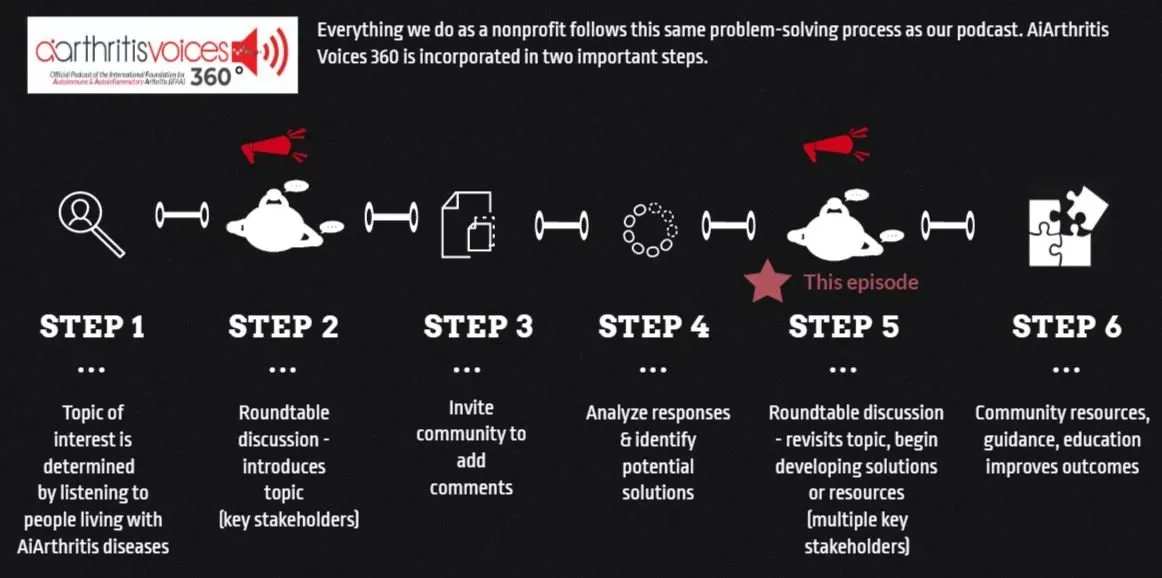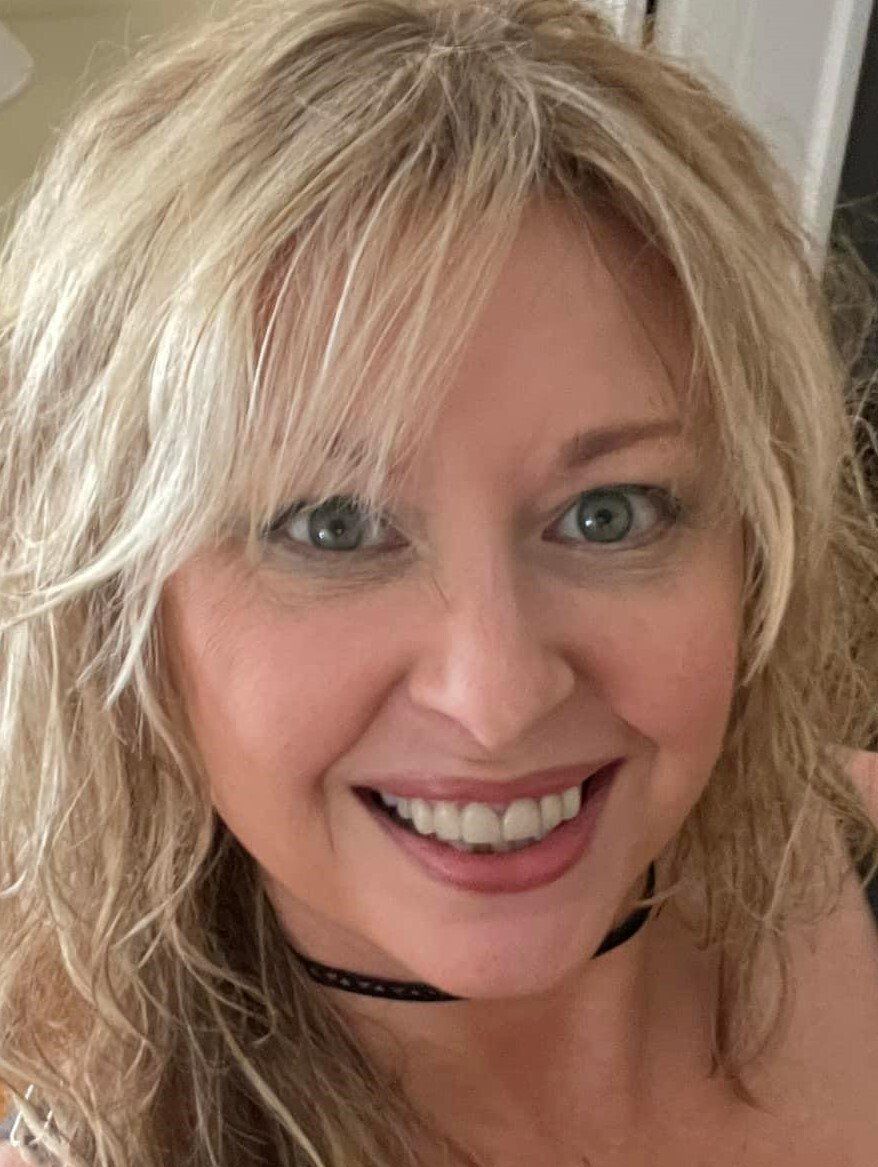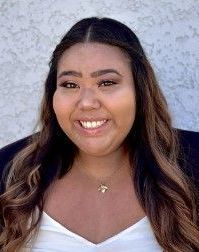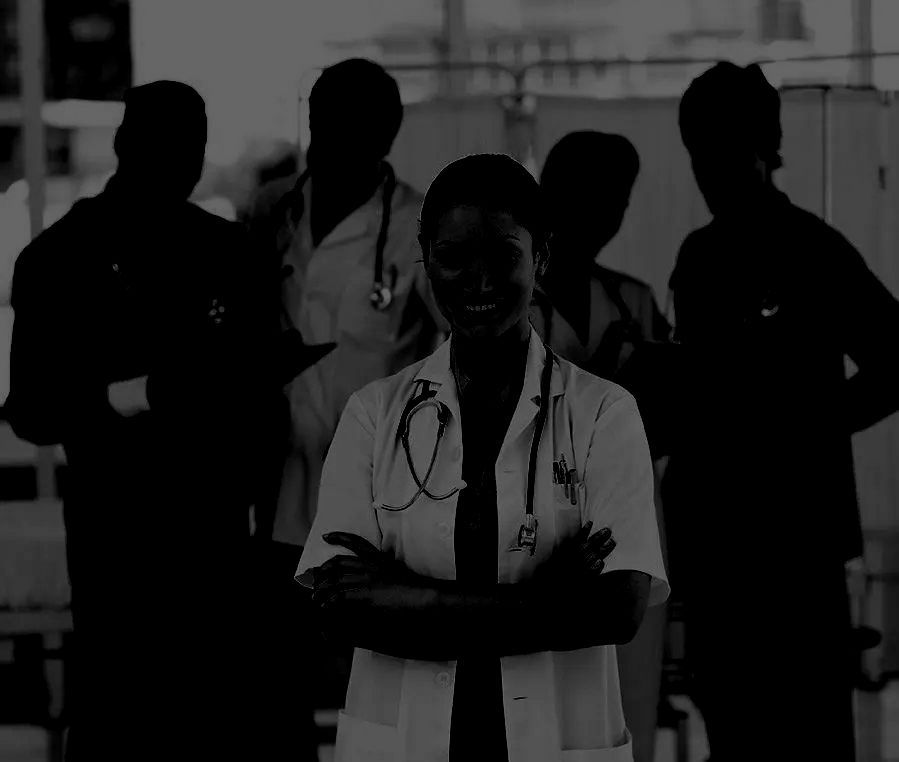[00:00:00] Intro: Welcome to AiArthritis Voices 360, the podcast solving
today's most pressing issues in the AiArthritis community. We invite you
all to the table where together we face the daily challenges of
autoimmune and autoinflammatory arthritis. Join our fellow patient co
hosts as they lead discussions in the patient community, as well as
consult with stakeholders worldwide to solve the problems that matter
most.
Whether you are a loved one, a professional working in the field, or a
person diagnosed with an AiArthritis disease, this podcast is for you. So
pull up a chair and take a seat at the table.
[00:00:45] Tiffany: Welcome to AiArthritis Voices 360. This is the official
talk show for the International Foundation for Autoimmune and
Autoinflammatory Arthritis or AiArthritis for short.
My name is Tiffany Westridge Robertson. I am the CEO of AiArthritis.
Also like all of our leaders at our organization, a person living with
AiArthritis disease is my primary diagnosis its non-radiographic, axial
spondyloarthritis, and I am not alone on this exciting hundredths episode
of our Arthritis Voices 360 talk show. I am here with the lovely Leila. Hi
Leila.
[00:01:21] Leila: Hey everybody. Like Tiffany said, my name is Leila P.L.
Valete I am the health education manager here at AiArthritis as well as
living with our diseases. I live with Lupus and Sjogren's, and I am so
excited to be a part of this milestone episode, I joined the hosting team
of the AiArthritis Voices 360 podcast about a year, year and a half ago.
And ever since then, I've learned so much from all of the different
episodes that I've helped to host and all the other ones that everybody
else has been a part of. So I'm so excited to be able to highlight these
three episodes for you that we have seen have gotten the most traffic
and the most listens.
So we are so excited to pull some clips from those and also kind of give
you a little bit of insight as well on top of that.
[00:02:08] Tiffany: Awesome. So as we both have said, this is a
milestone episode. We are at the official 100 mark. We are so excited.
And what we decided to do is we wanted, first of all, let's give a shout
out to Ryan and Christina, the producers of the show.
Woo. They don't get enough credit and behind the scenes and to all of
the co hosts we have, which you can find on our website. There are
patients from all around the world who help lead and co lead these. So
we want to also take the opportunity to give them a shout out. We'd like
to lastly mention, this is a core program at AiArthritis.
There's so many people who have written into us and said, wow, what I
learned from your show has been so impactful. We even shout out to
Danielle. One of our co hosts said that because of one of our episodes
in reproductive health that she realized she could still conceive. And
guess what? A baby was the result.
So what a great, great takeaway from that show. So today we've got
three where we, we asked the producers, can you pull our top rated as
Leila said and very interestingly enough, they all focus around
awareness, education, and a little bit of research and research
education. We do also cover public policy or advocacy at arthritis, but we
also know that that is sort of a separate on your own segment that really
requires patients to get involved with legislative efforts.
So, I'm not really that surprised that the education awareness, which is
also fitting with Leila being our health education manager that she's the
one co leading and I'm the original founder and I founded this as an
education and awareness movement that turned into an official
nonprofit. So I do find it interesting that it's still at the roots and the core
of who we are, that the resources that are seen to be of most interest
are about those awareness, the need to raise awareness about our
diseases, early detection and communication with our rheumatologist
that made it into the top three as well. So we're gonna go ahead we're
gonna tee up the first here, which is about awareness And it was with
Effie, Eileen and Kerry. What was the title of this one?
[00:04:24] Leila: So, it's episode 73 Arthritis Awareness, It's Complicated.
[00:04:29] Tiffany: So let's take a moment. We're going to play about 10
minutes worth of clips for that. But in the meantime, I also just want to
make sure that everyone knows we are in an expansion mode here at
AiArthiritis, meaning we are taking everything in our work to the next
level. We really hope that you will support that. So I'm taking a moment
to encourage you to go to AiArthritis.org/donate. We are doing a
campaign calling a grand to expand. And so for every thousand dollars that we raise, we can bring this talk show globally, and the resources
connected to thousands of people who don't even know that we exist.
We want to give our first shout out to Miss Deb, who is also a co host,
but who has given the first thousand dollars to AiArthritis to help us
expand.
We are also, cause it's the hundredth show. If you could donate a
hundred dollars, we will give you a personal shout out as well on the
next episode. So again, AiArthritis.org/donate and let's roll clip number
one. The first thing I tho just throwing this on the table and revisiting it is
just talking about why you think that awareness about our kind of
arthritis, autoimmune arthritis, auto inflammatory arthritis, the type of
arthritis associated with these auto diseases. Why is education and
awareness so important?
[00:05:55] Eileen: I think it's important because when I was diagnosed
with rheumatoid arthritis at 29, I was so shocked that what I was
experiencing was even arthritis.
I actually made my rheumatologist testing for everything other than RA
because I was like, this doesn't make sense. I thought Arthritis was just
joint pain. So I actually saw victim to the misconceptions of arthritis. And
so I think the awareness and the education about there to everyone, not
only helps people understand that arthritis is a serious disease, but also
help them recognize the symptoms so that they start treatment earlier
because diseases have better outcomes when treated earliest.
[00:06:33] Effie: And like Eileen said, I was diagnosed three years later
than planned. So I was having weird symptoms, chronic fatigue, joint
pain, and I was in high school at the time.
So doctors were like, Oh, you're just an active teen. You have growing
pains. Stuff like that. But, you know, even with my dad having psoriasis,
there wasn't anyone in my family or friend group who had any form of
arthritis. So even with the knowledge of having a family member with an
autoimmune disease, it wasn't really looked upon that I would have
arthritis at 18.
So, you know, when I went to see my pediatrician, she was like, Oh,
you're fine. But I kept kind of egging her on like, I basically went on
Google and did what you're not supposed to do and pretty much self diagnose myself. And then I went back two years later and I was like,
you know, my hands look a little different.
And it was more something that I could notice and she was like, yeah,
you should go see someone. And ironically, her sister happened to be a
rheumatologist, but throughout those two years, I was complaining to her
she didn't find it necessary for me to go even seek an opinion. So we
just kind of, you know, left the doctor's office, like everything's fine, you
know, so, but it really wasn't.
And that's kind of why I feel that it's important to discuss these things
because there's a lot of people out there, even with social media and a
bunch of like awareness, there are people out there who do not have the
answer still, even with modern technology and everything that we have
going on. So that's why it's important to sort of talk about these things.
[00:07:59] Kerry: And I would just jump off of that with, after all of this
time and all of this, still not having the answers. I mean, that really is just
the biggest and most important part of all of this. Because the, the
answer is to figuring out what it is that's going on with us. When we are
feeling pain, not only in our joints, but in all these other places that really
don't make a whole lot of sense, but also so many other symptoms that
affect so many other parts of our bodies in trying to figure out what it is
that's going on and trying to figure out what's wrong, it's so important
both for the actual tangible physical medical diagnosis and treatment,
but also in how we are perceived and understood by the people around
us. And that's the people in our families. That's the people that we work
with.
That's just general society and kind of how they look at us with arthritis,
with disabilities and all of that and the more we can raise awareness, the
more we can talk about what this is and what it means, the closer we get
to that kind of understanding.
[00:09:08] Eileen: I was going to add to that kind of more like the
general public awareness part of it, the way we talk about it too, because
a lot of the times we kind of even ourselves just describe it as arthritis.
But when you say rheumatoid arthritis, or psoriatic arthritis, or you give it
a different name or more of a name, then people like, oh, that's not just
arthritis, that is something else. And then on the day when we start
talking about them, you know, more people are like, oh, I've heard of that, I don't really know what that is, so it's the day to learn what this is
and understand more about it. And then hopefully people having those
weird symptoms, having those unexplained, no diagnosis, know what to
ask for, know what to look into, know, you know, what these things
actually are. And then hopefully the entire disease group gets more
respect and more acknowledgement for what they actually mean to live
with them.
[00:10:00] Tiffany: Wow, you all just had really, really great examples. I
have nothing else to add. Show over. But seriously, what you all really
explained very poetically almost was a journey. You went from detection
and diagnosis issues to what's going on with me, to misunderstandings,
which we're going to circle back on as well, to public education.
We sort of touched on doctor education because that all rolls into it. And
we will then lead into also talking today on this overlap, which we said in
our introductions is then you have this issue of, well, is the arthritis being
ignored? Is it being ignored because the doctor doesn't think I have it?
Am I too young?
Is it being ignored because it's not typically associated with my disease?
There's still a lot that goes around the arthritic component that if we
understood it, we meaning family members, meaning doctors, meaning
the public, we could really start to see better detection, better diagnosis,
earlier treatment, better quality of life.
It all equals into this equation just on this word. And then it even equals
into better overall healthcare, regardless of where you live, regardless of
what country, and better outcomes for the healthcare system. Because if
we're being treated early and we have better outcomes, then we have
less chance of having comorbidities from uncontrolled inflammation.
[00:11:35] Leila: Alrighty, and thank you so much again to our co hosts
who did help share their stories for this episode. Hearing each individual
patient's story is so important and I think that the more that we are able
to hear the stories and hear the commonalities that we have, the more
that we can push to help early diagnosis, early detection, and early
treatment in order to make sure that people who are getting diagnosed
with these diseases, you know, now and in the future can have a better
experience than these patients like we did have before. And I think that
that's what it's all about. It's about growing, learning more, and being able to help the next generation of those so they don't have to go
through the same things that we did.
And so if you resonated with any of what our co hosts said on this
episode. And you'd like to tell us your story. You can go ahead and go to
AiArthritis.org/rant and tell us more about your diagnosis story, all the
different things that you've gone through so that we can take those
points and be able to push them through for projects to help us with
early diagnosis, early detection, and early treatment for all of those
different AiArthritis patients that are coming and listening to these talk
shows.
[00:12:49] Tiffany: Absolutely. So we're going to tee up here to the
second one of the, and there's, these are in no particular order of
popularity. I might, I might, we just chose the, the way that we're going to
release them. So the second one, the one in the middle here is actually
from our special series called RheumyRounds and RheumyRounds is a
break off series where patients and rheumatologist professionals come
to the table as equals to have heart to heart conversations about topics
that as a result could improve our health care. So in this particular
episode, it was a two part series of Rheumy Rounds. We'll give a shout
out to Lisa Zicker, Dr. Lisa Zicker from Washington University in St.
Louis. We are not playing her clip, but she was in the second Rheumy
Rounds of this. You can find that On the website, but in this one in the
part two, which was called The Good, The Bad and The Ugly Improving
Office Visit Communications. And this was done with my rheumatologist
and our talk show segment, Rheumy Rounds, co founder Dr. Al Kim, or
just Al as he likes to be called. And then funny fact, also Leila's uncle. It's
true. You have to tune in at a different time though, to hear that funny
story. Anyway, so we're excited about this one being the clip because if
we can't get anywhere, whether it is diagnosis or great health
management, if we don't have great conversations with our
rheumatologists.
So we are going to go ahead and tee this one up. And don't forget if you
love the show and you want to support us as we expand to the next
levels, please go to AR arthritis. org backslash donate, give a thousand
for a grand to expand, or please for an honor of our hundredth episode,
a hundred dollar donation.
And we will call out you and thank you on a future show. All right, Ryan,
producer, let's tee it up. Okay, so Al, you're up. Roll the dice. Good, bad,
or ugly?
[00:14:57] Dr. Al Kim: I think, I don't know, I can't, I can't think of an ugly
situation. I'm sure there was. I just explained,
[00:15:05] Tiffany: we co we covered the ugly yeah. We're, we're done.
[00:15:08] Dr. Al Kim: No, we'll do some bads, some bads. And they
can really all go and get lumped into where I wasn't as effective as a
listener. I'm, I, I'm not gonna give specific examples. Mm-Hmm. . But
there have been multiple times where I either phase out sometimes, or I
just didn't fully understand the ask, and I misinterpreted without
clarifying.
And this leads to just a, a hellhole of a pit that you have to try to dig out
of in order to rebuild that trust. And I think, you know, at the end of the,
of these, clinics where all of a sudden it's like the last two or three
patients of, of, of a day, this happens. Part of this is that our energy and
our mood really has to match the intensity of the emotion of the ask,
right?
And this is a major source of burnout along with dealing with electronic
medical records, which is a separate topic. But, you know, for me, I'm
either fortunate or whatever, I only see patients half day a week because
most of my work at Wash U is in research. And so as a result, I can kind
of emotionally just let it all out, right?
But usually the rest of the day, I'm a bit of a zombie. Like I've just, I've,
I've, I've given all I can. So when I think of my colleagues who see
patients three, four, even five full days a week, I don't understand how
they manage their emotional reserve.
[00:16:47] Deb: Their brain, their brain just can't handle anymore
emotionally and what you're investing into each patient. Right. At the end
of the day, you're done.
[00:16:57] Dr. Al Kim: Right. You know, I mean, I think we're, not all
physicians are empaths, first of all, but of those who are keeping it up at
a, you know, a nine or a 10 level out of 10 is, is a lot of work. But I think,
you know, I look at that the other way around is that a lot of our patients that are coming in with issues that are 11 or 12 out of a 10 scale, they're
living it 24/7 and I just have to turn it on and off during these visits, right?
So it kind of tells me also that I kind of need to work on on managing
those emotions and those energies to make sure it's consistent and at
the intensity that is required to make sure that many of the people that I
see. are equally satisfied with the care they're getting and that, and
confidence with the plan moving forward.
I, you know, that's something, again, I, I think, I don't, I never would have
thought this would have been an issue during training. But, of course,
during training, I was much more concerned about, am I making the right
decision, you know, medically? I always want to make the right decision
medically, but that's usually sometimes not the right decision in the real
world, right?
And that's where, right, and that's where the, you know, under, you
know, that active listening really is so critical that adds more than just
subtle nuance. I mean, it can add just, you know, a whole new layer of,
of, of a difference in how you're going to present options.
[00:18:23] Tiffany: No, that's a, that's a great, great point. So tell me
about what you think, Al, are some of the best, doesn't have to be
specific examples, but what makes a very good experience? What, if
you were going to create some bulleted recommendations for this
ebook?
[00:18:46] Dr. Al Kim: Good question.
[00:18:47] Tiffany: You know, I know, and I didn't even prep you for it,
so it's just going cold.
[00:18:52] Dr. Al Kim: Yeah, and there's just gonna be silence and the
rest of this podcast is gonna be super awkward because of it. I highly
doubt that. You know and again, a lot of this really is dependent on kind
of the time pressures of that clinic session. Yeah. But the more
organized the patient is, and we've talked about this in prior podcasts,
I've heard you guys talk about this in prior podcasts, you know, telling
patients, organize your thoughts, right?
And try to bring a list in, or better yet, send a list through the electronic,
you know, medical record system, all right, that can prep the provider with, you know, talking points, so that there isn't, so at least there's you
know, an ability for me to be able to say, you know, I've looked at these
and I can lump these into three major things.
And let's just, I want to run through them, just double check whether or
not this is consistent with the way you're thinking. All right. Out of the list
of, say, 20 things that are there, right? So that saves so much time, but it
also addresses all 20 of those concerns. Right, and so we don't do a
very good job of that in our clinic.
We don't prep our patients to think like that, right? And again, there's so
many, so much room for, like, for improvement in how we, how we care
for our patients. But, you know, I, I, this would be probably one of the
next steps that we would do, at least within our lupus center, is try to
come up with these type of forms.
I, I know the Lupus Foundation of America has some stuff, DeGlasgow,
SmithKline, and has some stuff through the programs through for their
Blooming Man product. And so there are resources, we just need to do a
better job of disseminating them, instructing our patients on how to best
use them, and then actually using them.
You know, when we Like in our research group, you know, we'll use
things like Slack, you know, other things will be like Discord, right, where
it's this asynchronous communication, right, that we don't, we kind of do
a little bit in medicine, you know, with phone calls in the past and portal
messages, you know, now, but I think we don't, obviously we don't use it
to prep for a formal visit and trying to extract out as much value within a
very limited amount of time.
Right. So that I think is a something we just need to do a better job of
just executing.
[00:21:18] Tiffany: Deb, what do you think makes for a really good
experience?
[00:21:23] Deb: So, I'm going to give a shout out to my rheumatologist
here in Madison, Christy Bartles. I figured you'd know her because
again, she's in the research world as well.
[00:21:33] Dr. Al Kim: She's so good.
[00:21:33] Deb: Yeah. So, every time I am at ACR, I always try to go
and hop in on whatever she's participating in and she, during
appointments, will tell me what she's knee deep in as far as research
goes, but she is fabulous because she brings in this document. So as
she's asking how things are going, she's filling in everything on this tear
off sheet.
So I get a copy and she keeps a copy and it reminds her too. And as
we're talking about things, she will write down okay so, where I'm
thinking is these might be the changes we might need to do. And we're
going to do at least one of them, if not two. And then she always wants
what? My opinion is it's always complete, you know, shared decision
making.
She takes notes on everything that I'm saying as far as what's better,
what's not better, what parts are really in flame. Cause she still looks at
my hands are a mess so she'll still do all the documentation of
everything. And I feel like I'm really listen to because she's making eye
contact when she can, but she's documenting everything.
And I still go home with that torn off sheet and she'll go into her little spiel
about, okay, so this is what we're changing and in the very bottom of the
document, it's got what I need to do. So I'm walking away with, I know
exactly what I'm going to be changing.
[00:23:14] Tiffany: Well, you went ahead and answered the last
question or partially, so I'll answer it.
You could add to it, but you delved into, I was going to say some of the
barriers, the biggest barriers to communication in different components.
So you, I mean, you started touching on it is there anything else that you
would add as far as, yeah, this is really a barrier.
[00:23:37] Dr. Al Kim: Yeah, I think I can't remember who mentioned,
like, simple things like eye contact. Oh, it was you, Deb, right?
[00:23:43] Deb: Yeah.
[00:23:43] Dr. Al Kim: It's just, you know me, Tiffany like, you know, our
visits, what I'm trying to achieve is, can we have a similar conversation if
we were strangers at a bar? Mm hmm. Right. Yeah. Wait. What did I
say? Yeah. Right. But that's kind of the intent. It's kind of like, it's going to be a free flowing, it may be directionless for a bit of time, but at the
same time, you're trying to get to just, you know, a very comfortable
stage where information is being transmitted back and forth.
Right. We're trying to remove barriers. That's ultimately, at the end of the
day, the biggest thing, because I am new to you as a patient, all right,
and yet at the same time, I need to earn your trust almost immediately in
order for you to give me the depth of information and the quality of
information, including things that are going to be personal in order to be
able to get you to the next step.
And so, like, for me, I'm going to exercise my privilege as a man
because I think for women this is much more difficult because of status
or respect issues. You know, in our part of the country, it's a problem for
many of our female physicians. But, like, I never wear my white coat. I
don't even know where it is.
I know I don't wear ties. I'll even wear things like this to the clinic, you
know, I have kind of this pullover, right? And largely it's because I'm not
at all interested in playing the game where I'm the doctor and you are
the patient. You know, this is a conversation between two people, right?
With two different skill sets and two different knowledge bases.
I have a specific knowledge base that's much more generic and broad,
right? For the many thousands of people with disease to access. You
have a knowledge base for your experience, all right? And somehow we
have to bring everything together. And so it's a lot harder for the patient
to be able to relay that experience, I think, than it is for us to be able to
relay information.
Right. What we're thinking. Right. So that's to me, the most important
personal goal with each new patient is to make sure that there's going to
be no barriers. All right. I, I'm not going to judge you because I frankly
look at myself and think, my God, I got a lot of problems. So. Right. But
that's kind of how I, I, I, I view it.
Right. Is that, you know, it's just, this is the way for us to just have that
conversation at the bar. Right. That's essentially it.
[00:26:14] Tiffany: And disclaimer, at no time were there ever alcoholic
beverages served in this doctor's office bar.
[00:26:21] Dr. Al Kim: Right, right, right. But, but it's been discussed.
[00:26:23] Tiffany: Analogy only. Yes. It's been discussed. Analogy only.
It's been discussed. That's true. That's true. I'm going to wrap this
conversation up because we want to encourage it to be continued by
everyone who is listening. We put a lot of different subtopics of
communication and how it works in a doctor's office on the table here.
We talked about adherence.
We talked about diagnosis. We talked about therapy. We talked about
not being heard. We talked about barriers. There's so many different
components to this, and we all have very varied stories and varied
experiences, and we really do believe that we collect enough of these
stories along the spectrum of what is good, what is bad, what is just not
okay, then we can't like, circling back to Deb's clinical trial story and her
poor husband Tim not loving her poor Tim.
[00:27:28] Dr. Al Kim: What a shame. What a shame.
[00:27:30] Deb: He got thrown under the bus.
[00:27:31] Tiffany: He got thrown under the bus.
[00:27:34] Deb: And never knew it.
[00:27:35] Tiffany: And then being able to work together to come up
with some great examples and things that we can build on. So it is a joint
effort that did not even plan that pun, but it worked. So it's a joint effort
between the rheumatologist and the patients that we would love for
everybody listening to be part of it. Very simple. Just submit your story.
We'll share the link with you also in the text portions of this, but it is at
AiArthiritis.org/gbu good, bad, ugly. So it's very simple to find more
information on this and a link to submit your story. You can submit as
many as you'd like. And we are just looking forward to seeing where we
could go with this to improve communication in the doctor's office.
So I want to thank my co host, Deb. so much for being here. And also,
Al, I appreciate you taking the time out as well. So, Al, tell everyone
where they could find you or follow you if you want. I know you do great
posts that I follow on Twitter. What's your handle?
[00:28:44] Dr. Al Kim: It's much more non, not safe for work on Twitter,
but my handle is @AlHKim, A-L-H-K-I-M.
If you follow me and a lot of the threads that are on, I'm on, you'll also
get hooked up with many of the rheumatologists who are really engaged
in social media. Mm-Hmm. . And you'll be able to kind of see some of
the debates and the issues that we're having internally if you wanted to,
are in the St. Louis region. You can simply Google my name, Alfred Kim
at Washington University and my faculty page will pop up and there'll be
contact information there if you wanted to be seen, especially if you, if
you have or suspect to have lupus.
[00:29:27] Leila: All righty, and thank you again to Deb for being part of
this segment that we put together.
had here as well as Al or Dr. Kim for being so candid and open with all of
his stories having to do with patient communication. He talks about, you
know, how he learned how he had to communicate with patients and we
appreciate that so much as patients as Doctors learn how to
communicate with us best because it is a two way street when it comes
to communication.
So I think that that in itself, him showing that he's willing to, you know,
see how we would like to be communicated with and what works best is
such an amazing takeaway from that clip. And speaking of
communication, there's actually something really big that Tiffany and
part of the AiArthritis team has been working on when it comes to
communication with juvenile idiopathic arthritis. So if you want to talk a
little bit about that,
[00:30:19] Tiffany: Sure, there is a project that we have been working
on for about a year now with purple players foundation. So shout out to
that amazing organization that focuses on chronic conditions and
children.
And it is a full series communication share decision making is
communicating and doing health treatment plans. with your
rheumatologist, with your healthcare providers. This takes it actually a
notch up from there. And they are a series of communication aids that
families can use in any phase of the journey from mystery patient to
diagnosis, from diagnosis to treatment plans and in any of the specialists
that you may see along in your journey. These are created for you with several different specialists and many families. This is a first of its kind,
like everything arthritis does something a little bit different than you've
seen before. We are getting ready to pilot test these in a pediatric
rheumatologist office.
So stay tuned and you can learn more about these at
AiArthritis.org/jiacommunication. All right. So we are going to jump in to
the third and final of the top three. And this one is near and dear to my
heart because it's really the reason I founded the organization in the first
place called, why won't they diagnose me that I was the mystery patient.
And I was telling Leila before we did this, you know, we get, we
obviously have an info at email, we have an 800 number, et cetera. The
number one request that we get is for materials education, please help
me get diagnosed. We know that most of us start as a mystery patient.
We also know that about 50 percent of us either end up with an
undifferentiated disease diagnosis, which could be undifferentiated
connective tissue, undifferentiated spondyloarthritis.
There's lots of different words that fall under this undifferentiated
category. And even though about 25 percent get that, we say 50 percent
because the other 25 percent or so actually could get a diagnosis of
undifferentiated. They just go with nothing. And either way, that is very,
very dangerous because we need, we need to get on medications,
which you can do with undifferentiated.
You'll hear in this clip actually that I was hold no treatment with it. So not
only did I have a trouble getting diagnosis, I didn't even get the right
treatment. So very important. Anything else to tee this one up, Leila?
[00:32:59] Leila: No, I think that definitely just thinking about, you know,
all of the different projects that we do at Aiarthritis with this subject we
definitely have some resources that are premiering, including our
Mystery Patient Guide that is a collaboration with this episode that we
are trying to get, you know, more information from patients in order to
put together this mystery guide. And so if you go to the website page of
episode 90, there will be a link there for you to submit any diagnosis
advice for patients that are going through the mystery patient stage.
And so we would love for you all to, you know, give us some insight. Let
us know how it was to be diagnosed. If you were diagnosed recently,
that's really something that we want to hear. So you, like I said, you can go to the AiArthritis Voices 360 page, go to episode 90, Why Won't They Diagnose Me? And there will be a Google form there that you can fill out
to help give some advice to patients.
[00:33:56] Tiffany: Awesome. So let's take it away. This episode, Why
Won't They Diagnose Me? was myself, Danielle, and Kerry. Let's
actually break off right into that, Danielle, because when we were
previewing what we were going to talk about on the show, you talked
specifically about this, and I think that it leads into this bullet.
We've got the window of opportunity that we're supposed to hit and the
reason why it's because research shows, and we're seeing it every time
we take, we go to the ACR, every time we go to ULAR, we're seeing the
word remission, and we're like, what? And remission is happening to the
people who are getting the diagnosis early, who are getting the
treatments early, which is why this is so important.
But that's not the norm. It's not the norm. And too often, we get a detour
on our road. That is one of these main issues of why we're not getting
diagnosed. So, Danielle, why don't you talk a little bit about that?
[00:34:56] Danielle: So, I think that that really breaks into two parts. First
of all, as a patient, you have to know that you need help.
And for me, that was a huge hurdle. And at the beginning of my journey,
I was a kid, I didn't know anything. But even if you just limit it to when I
was an adult and I was going to see my own doctors you only have ever
existed in your body. You don't know what other people's reality is like.
So I thought everybody had chronic pain.
I thought everybody was tired all the time. I thought everybody had
random fevers that popped up out of nowhere. Like I didn't know that
was unusual. That was the first thing. And then when I did start asking
for help, my doctors would go, oh, there's something wrong with your
shoulder, go see an orthopedist.
There's something wrong with your knee, go see an orthopedist. Nobody
sent me to a rheumatologist for years and years and years. And in point
of fact, when I did finally end up at a rheumatologist, it's because a
radiologist came back and said, look, I pulled this patient's MRIs for the
last three years and I think this is RA.
And that's when an orthopedist finally sent me to a rheumatologist. So,
even just recognizing that I needed to see one was a huge problem. And
then the other part of it is once you know that you need to see a doctor
and you're sitting in front of one, getting them to listen to you can be a
huge problem.
You know, most of the people who take a long time to get diagnosed like
you guys have seronegative versions of things and I know we're going to
talk about blood work here in a bit. That wasn't me. When they did finally
test my blood, I had rheumatoid factor positive, I was ACPA positive, I
mean my blood work was screaming, this person has a rheumatic
disease.
But nobody ever tested it that whole time. We know that some members
of the medical community have bias that they're not aware of and they
tend to downplay women's pain and like 90 percent of people with
rheumatic disease are women.
[00:37:10] Tiffany: Research has shown, Danielle, you mentioned you
were at ACPA positive, rheumatoid factor positive, you don't need those
to have rheumatoid, even though it's in the name, you don't have to have
those to have, people can have rheumatoid factor positive and not have
any of our diseases.
It's a blood marker in saying that people with our diseases that do have
these markers have typically worse outcomes, meaning they have more
aggressive disease, they might be more difficult to treat, they might have
worse flares, that type of thing. And so that's also slinging back why I
realized in the beginning undifferentiated at some times, not always,
sometimes it is a question mark, but also other times it can mean that
you have milder onset, which if you snip it and you get treatment for it,
that is actually could be a good thing. In my journey, Undifferentiated
why Kerry I feel that I thought it was a bad thing was because they told
me, similar to what you were told, I can't treat you, is what they told me, I
can't treat you until I can figure out what this grows into, what this
becomes, a full fledged disease.
So they were basically telling me, you don't actually have something,
you have something that is not treatable. But once I got educated, I went
back and realized there was treatment guidelines, not great ones, but
there were guidelines that said I should have been treated with some
mild disease modifying agent.
And I was denied that. And guess what? I got worse. Things got worse,
a lot worse. And I do look back a lot today and say, I wonder if there
were people like Danielle, like you, Kerry, like me, like a lot of us here at
AiArthritis like the people that you were just at the conference with Kerry,
our friends, the people we talked to, if we could unite and create some
kind of guide, some kind of navigation, something for these people who
are coming into AiArthritis and saying I don't have answers. We've got to
start somewhere, and I feel like why not start with the people who are
the experts, right? And that is us. All right, Danielle, what do you
specifically still want to put on the table here as a point that we talked
about that we would bring up that we haven't gotten to yet?
[00:39:38] Danielle: One of the things I think it's really important for
everybody who is still searching for a diagnosis to understand is that
your blood work is not a blueprint to your body. It's not something that's
static. It changes all the time. It is one snapshot in time. I have tracked
my markers now because my rheumatologist keeps changing my
diagnosis every time I turn around for several years.
I have had times where my rheumatoid factor was barely positive. I've
had times where it was very positive. I've had times where my ACPA
was off the charts. I've had times where it was fairly moderate. If you
look at sed rate, which is a sort of a generic marker that indicates how
much inflammation is in your body, but a lot of doctors put a ton of
weight on that.
I have had times where it was normal. I have had times where it was 110
and normal is like less than 10. The pathology report that I got back that
time said you know, evaluate this patient for cancer because those
levels usually indicate something really, really bad. So just because you
get back negative blood work doesn't necessarily mean even that you're
seronegative.
It may just mean you didn't have positive markers that day. Now
obviously if you've had multiple tests and they're still negative, that also
doesn't mean that you don't have one of these diseases. But I think it's
really important for everybody to know that one test doesn't prove
anything and it doesn't disprove anything.
[00:41:14] Tiffany: Okay. And so there we go. Those were our top three
of the 100 episodes that we have done so far in the AiArthritis Voices
360 talk show. This has been such an amazing journey we've had for the last few years and we have only just begun. But we need your help to
keep the show all of our resources and all of the great work we do as
patient leaders, helping create patient led materials to do infused
solutions. And that is a pun intended. So everything we do is by patients
for patients, please consider supporting AiArthritis. 1, 000 for a grand to
expand. Even if you are not able to give 1, 000 yourself, we are also
hoping to reach that grand to expand.
We're saying, Hey, if you can do it, do a hundred dollars at
AiArthritis.org/donate. We will call you out publicly on a show, which will
live for eternity in that episode to thank you for the support of the work
we do, not only for the show, but everything you've heard of the different
projects we do, all of that goes into one big bucket and you'll see the
impact that we have together.
So I just, again, as we start to wrap up these episodes, I want to remind
you that
everything we do at AR Arthritis is for you. You could always go to
ararthritis. org backslash rant. That is our catch all anything you want to
rant about. It goes to it goes to a forum. You can be anonymous or you
don't have to be anonymous.
But that drives everything we do. Everything you've heard of at our
organization always person foremost starts with talking to our peers and
identifying the missing gaps that we need to do to solve anything else
that you want to add. Leila.
[00:43:08] Leila: Yes. And you can go ahead and submit your rant. Like
Tiffany said, we also have had patients and other support members of
their support network.
Email us at info at AiArthritis.org. letting us know what you like about the
show. What topics would you like us to talk about? Is there anything that
we're, you know, that's happening in the AiArthritis community space
that we don't know about that you think is important for us to address?
Let us know at info at AiArthritis.Org. We'll be able to possibly make an
episode of the topic that you talk about and we'll make sure to shout you
out for that, too. So let us know. And I just wanted to say in general this
exercise of being a part of this podcast and this talk show has been so,
you know, helpful for me. And I've heard from my family members that
they've been able to hear so much about what we go through on an everyday basis that it helps them to also understand what we go
through.
So even if you may not have an arthritis disease yourself, but you have
family members that do this talk show is a really good way for everyone
to kind of get a good feel of what an AiArthritis patient might go through
on an everyday basis.
[00:44:14] Tiffany: Yeah, great add there, Leila. So thank you all for
tuning in. You could also find us on social media.
Just look at for IFaiArthritis on all of the major channels. And again, you
can find this talk show on our website at AiArthritis.org. Thank you all for
the first hundred looking forward to the journey together on the next
hundred plus. AiArthritis Voices 360 is produced by the International
Foundation for for autoimmune and autoinflammatory arthritis.
Find us on the web at www.aiarthritis.org. Also, be sure to subscribe to
this podcast and stay up to date on all the latest AiArthritis news and
events.
















